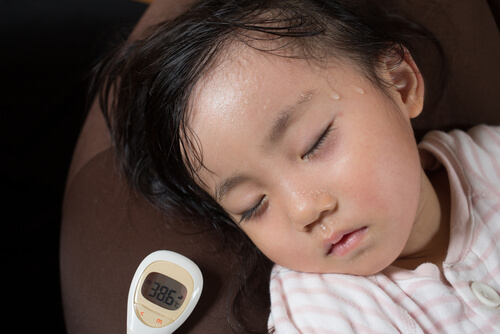
Graves disease is an illness that affects the thyroid gland and can disrupt metabolism. The metabolism is responsible for the way the body uses energy and perceives heat and cold. With the onset of Graves disease, there are a number of early signs, including problems with the eyes, sensitivity to heat, sudden weight loss, red bumps on the skin, anxiety, heart palpitations, goiters, and tremors.
Just a few of these symptoms may not necessarily be a sign that you are coming down with Graves disease, but if you have a number of them, you should be tested for the problem. Although dealing with the underlying problem may lead to a reduction in symptoms, there are other ways you deal with the symptoms until the condition is brought under control with medication. Try changing your diet to heart-healthy foods, staying cool, taking up medication to calm you down and using cream to soothe your skin.
1. Sweating
Sweating is one of the early symptoms of Graves disease as well as other signs of heat sensitivity. Grave’s disease affects the thyroid gland which controls metabolism which has an effect on our perception of heat. You may notice a sudden difficulty dealing with heat as well as light, whether natural or artificial heat and light. When the thyroid is disrupted, the basal metabolic rate is affected, the perception of heat and cold can change.
Hypothyroidism, for instance, can lead to a greater sensitivity to cold. Hyperthyroidism, which is an effect of Graves disease, can make summers difficult. Treatments for the underlying problem may eventually relieve symptoms, but in the meantime, cool off with chilled drinks and electric fans when necessary. You may also want to take a bottle of chilled water with you so you can spray your face and neck and cool off whenever you need to.



